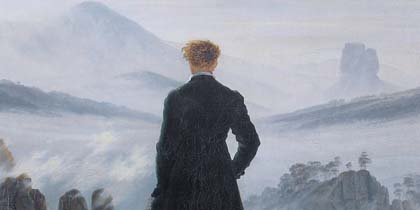
March 23, 2012, by Brigitte Nerlich
The magic of science
Guest post by Dr Kate Roach, former member of the Institute for Science and Society, now writer and public engagement researcher (kr@kateroach.net)
Defining science
A recent invitation on twitter to define science, #scidef, has brought forth quite a number of mysterious or magically inclined interpretations. For @TripOnEgo science is an: “intrigue-inspired investigation, commanded by moral discipline and an understanding of untouchable truths”. For @i_am_agnel it is: “Knowing the Unknown n Unexplained things” and @pixievondust has: “Science is a lie that cheated us out of magic” while @birdie_golden says its “The real pursuit of God”.
What is the relationship between science and magic? The range of responses lies in the tweets. Science is defined against magic or it is described itself in magical terms. Included too is God, mystery and the whole messy kit and kaboodle of science and religion exchanges. Putting that (admittedly enormous) topic to one side for now, I want to focus on a speciality of magic that is specifically relevant to science in public and the public understanding of science.
Defining magic
First of all what is magic? It is a problematic term. It is a method of knowing and doing that engages with supernatural entities and it is used as a descriptor for all things wonder-ful, exciting or other-worldly. In secular form, it is conjuring – an awe inspiring activity, loved by millions who know that its methods conform to natural, rational and theoretically knowable laws, but nevertheless enjoy seeing the seemingly impossible happen before their eyes.
Whichever way, the allure of magic, supernatural or secular, is in its mystery. 15th-century scholar John Baptist Porta, author of Natural Magick (1658) sums this up perfectly: “if you would have your works appear more wonderful, you must not let the cause be known: for that is a wonder to us, which we see to be done, and yet know not the cause of it…”.
Making science visible/making science spectacular
Here is the nub of the problem for the public understanding of science. Audiences are rapt by spectacle produced by a method that they can’t see and don’t understand. Such showman scientists as Humphry Davy have been naturally cognisant of this fact and used it to wow early audiences at the Royal Institution.
In similar vein, how many people, bar physicists can actually say they understand how the Large Hadron Collider does its stuff? Apparently, our understanding of the universe is about to change as a result of high energy collisions of miniscule ‘particles’ which have extraordinary names. If stringballs, winos and inflatons don’t sound magical then what does? And, yes, I am dying to know the answer to the universe. Indeed, CERN seems to have captured the popular imagination in a way that the development of the long distance electric car or the latest taxonomy of ferns, for example, have not.
Yet the post-climategate zeitgeist has brought about reflections upon “post-normal” science (shorthand for a science that’s supposed to be more honest about its own messiness) and an appeal for it to show its workings. But are we not in danger of unweaving the rainbow of science as we know it?
I suspect not, for two reasons. One is, that I, along with many others, would not know the difference between a neurtrino and a ballerino if it hit me in the face. Neither would I have the means to understand the strings of algebraic arcanery that would be required to fully explain the matter. I am one of those impoverished souls who functions (largely) within a world of words and particle physics does not translate well. So, for myself and myriad others, physics is akin to an oracle – as a biologist, I always followed the mantra that if it were physics it must be true, but God only knows how. The methods like the magic remain a mystery and revealing them is like knowing whodunit at the beginning of the story.
Science, wonder and the sublime
There is another facet to the magic, or wonder, also well demonstrated by CERN but not the ferns or the electric car, and this is its big questions. Science, like magic, creates wonder by allowing us to reach beyond our human capacity. It is this aspect of science that Richard Dawkins so well describes in his work. His own science, of evolution, conjures long gone monsters of the deep, bees the size of birds and the viscious velociraptors of popular imagination. All are worlds beyond our grasp as are universes, big bangs, other planets like earth and those incredible colliding ballerinos, or was it neutrinos?
Such awe-inspiring largesse was once known as the sublime. Gaze over the edge of deep gorge or gasp at the unending extent of an African plain and scare yourself with a ghost story and you have experienced the sublime. The sublime and magic are wonder-ful because they are beyond human. They take us out of our tiny human orbit just for a moment. And this is what science does at its best.
If post-normal science does try and show its workings might we be in danger of cheating ourselves out of the magic of science?
Image: Caspar David Friedrich Wanderer above the Sea of Fog (1818) (wikimedia)

[…] studies‘ earlier in the year). I also wish I would have written a post on curiosity (and wonder, which Kate Roach had covered a bit earlier in the year when I was […]